While IT sector undeniably driving innovation and progress, It’s also contributes to environmental concerns through resource consumption and electronic waste.
Tech-savvy individuals passionate about the environment, there’s good news! Several IT specializations offer opportunities to leverage your skills for a greener future. This guide explores seven such tech jobs where IT professionals can make a positive impact.
A complete guide to OTTR finance SMS receive
SoundHound CEO Keyvan Mohajer says AI enabling voice user device interfaces (VUIs)
Deals & Discounts on Popular Auto Accessories on Amazon 2024
7 Tech Jobs IT Individual Can take to Help the Environment
1. Sustainable Software Developer
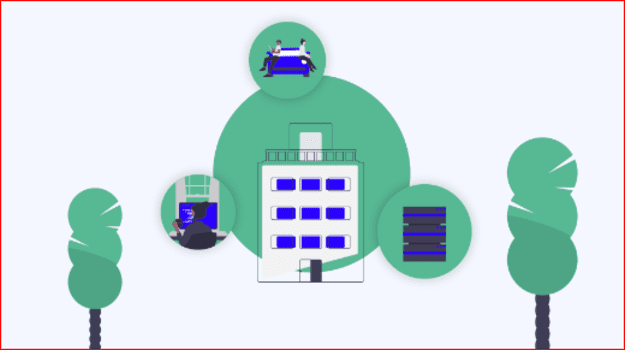
As the backbone of technology, software developers play a crucial role in shaping the environmental impact of digital solutions. Sustainable software developers strive to create software that is:
| Resource-efficient | This involves optimizing code to minimize energy consumption and resource allocation during operation. |
| Durable | Building software with a longer lifespan reduces the need for frequent updates and replacements, minimizing e-waste. |
| Secure | Robust security features contribute to a longer software lifespan by preventing vulnerabilities that necessitate frequent patching or complete overhauls. |
For individuals with existing development expertise who want to make a difference, acquiring certifications in sustainable software development can equip them with the necessary knowledge and skills.
2. Green Cloud Architect
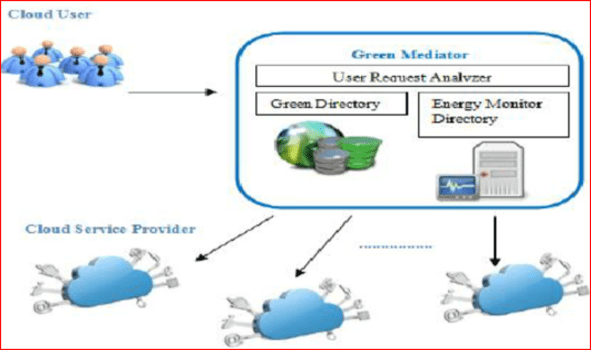
Cloud computing offers numerous environmental benefits, like reduced energy consumption compared to on-premise data centers. Green cloud architects specialize in:
| Optimizing cloud resource allocation | This involves selecting the most energy-efficient cloud services and configurations, minimizing unnecessary server space and power usage. |
| Promoting the adoption of renewable energy sources | Green cloud architects advocate for and implement cloud solutions powered by renewable energy sources like solar or wind power. |
| Designing sustainable cloud infrastructures | They consider the entire life cycle of cloud resources, including energy consumption, material usage, and e-waste disposal, when designing cloud architectures. |
Individuals with cloud computing expertise can pursue green cloud architect certifications to specialize in this eco-friendly field.
3. Environmental Data Analyst
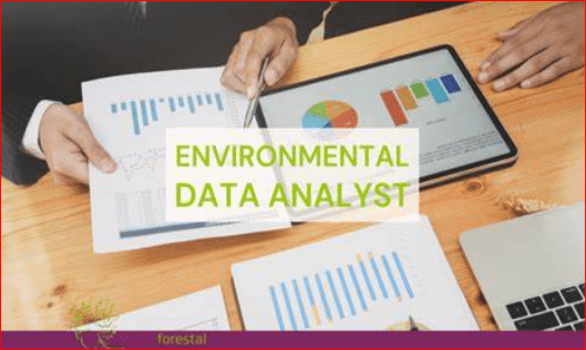
The power of data is undeniable when it comes to environmental problem-solving.
| Collecting and analyzing environmental data | This involves gathering data on pollution levels, resource consumption, and ecosystem health. |
| Developing data visualization tools | They translate complex environmental data into clear and concise visualizations that inform decision-making. |
| Identifying environmental trends and patterns | By analyzing data, environmental data analysts can identify trends, predict future environmental challenges, and inform strategies to address them. |
Data analysts with an interest in environmental issues can explore specializations in environmental data analysis or pursue certifications specific to the field.
4. Clean Technology (Cleantech) Specialist

Clean technology, or cleantech, encompasses technologies focused on environmental sustainability. Cleantech specialists contribute to this sector by:
| Developing and implementing cleantech solutions | This involves identifying emerging technologies like renewable energy sources, energy storage solutions, and smart grid systems and working towards their integration into existing infrastructure. |
| Managing cleantech projects | They oversee the planning, implementation, and maintenance of cleantech projects, ensuring they meet environmental and economic goals. |
| Advocating for cleantech adoption | Cleantech specialists raise awareness about the benefits of cleantech solutions and promote their adoption by businesses and governments. |
IT professionals with experience in project management, data analysis, or specific technologies can consider transitioning to cleantech by acquiring relevant knowledge and certifications.
5. Information Security Specialist (Green Security)

The IT security field plays a vital role in protecting data and safeguarding critical infrastructure. Green security, a subfield within IT security, focuses on:
| Reducing the environmental impact of security measures | This involves optimizing security protocols and technologies to minimize energy consumption and resource usage. |
| Ensuring the sustainability of security solutions | Green security specialists consider the environmental impact of security solutions throughout their life cycle, including manufacturing, deployment, and disposal. |
| Raising awareness about the environmental implications of cybercrime | They educate stakeholders about the environmental costs of cyberattacks, such as energy consumption related to data breaches and malware. |
Existing IT security professionals can upskill themselves in green security through specialized courses or certifications.
6. Sustainability IT Consultant
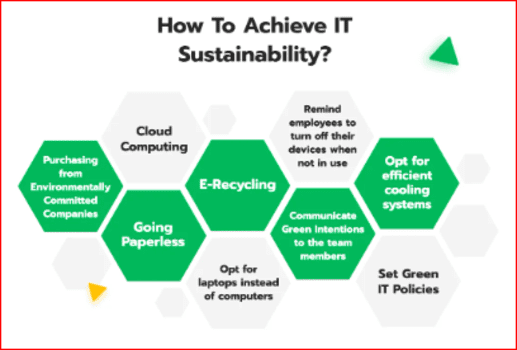
Sustainability IT consultants help organizations integrate environmental sustainability considerations into their IT practices. They work with businesses to:
| Assess the environmental footprint of their IT operations | This involves identifying areas where IT processes contribute to environmental concerns, such as energy consumption and e-waste generation. |
| Develop and implement sustainable IT strategies | Based on the assessment, they work with organizations to create and implement strategies to reduce their environmental impact. |
| Promote best practices for sustainable IT | Sustainability IT consultants advise organizations on adopting best practices for resource-efficient IT operations and responsible e-waste management. |
IT professionals with expertise in system administration, project management, and sustainability principles can consider transitioning to sustainability IT consulting.
7. Environmental Policy Analyst
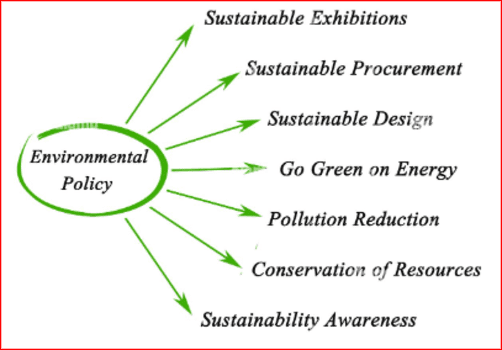
| Understanding environmental regulations and policies | This involves staying abreast of existing and emerging environmental regulations and policies relevant to specific industries or technologies. |
| Analyzing the impact of IT on the environment | Environmental policy analysts assess the environmental implications of various IT practices and technologies, informing policy decisions. |
| Developing and advocating for environmentally sound IT policies | They work with policymakers and stakeholders to develop and advocate for policies that promote sustainable IT practices and mitigate the environmental impact of technology. |
IT professionals with a strong understanding of environmental issues, policy analysis skills, and an interest in influencing change can pursue careers as environmental policy analysts. Additionally, individuals with legal backgrounds or experience in public policy can leverage their expertise in this field.
Important Note
| Tech Jobs for IT professionals | click here! |
Conclusion
The IT sector offers numerous opportunities for individuals passionate about the environment to use their skills for good. Whether it’s developing resource-efficient software, promoting renewable energy in cloud computing or analyzing data to inform environmental policy.
The tech industry holds the potential to be a powerful force for positive change. By exploring these seven tech jobs and acquiring the necessary skills and knowledge. IT professionals can make a significant contribution to building a more sustainable future.




